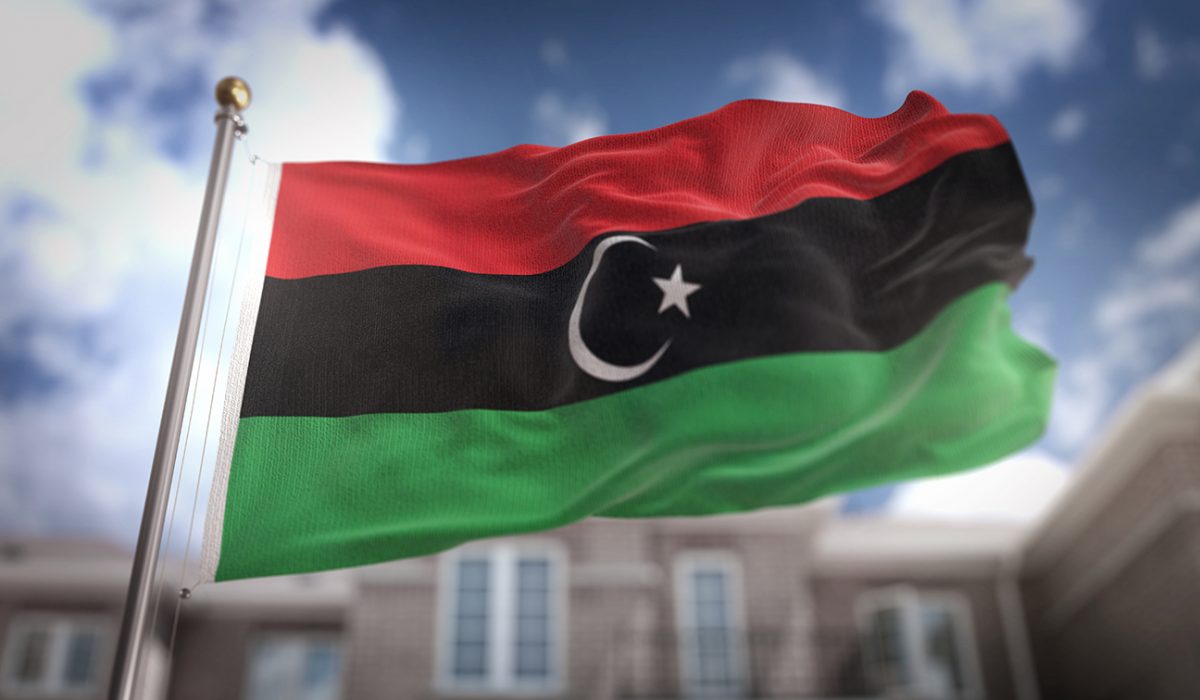Canada remains silent on illegal Canadian weapons in Libya
Published in The Ploughshares Monitor Volume 41 Issue 4 Winter 2020
On October 5, under mounting pressure from civil society and the Armenian diaspora community, Global Affairs Canada (GAC) suspended exports of Canadian-made L3Harris WESCAM surveillance and targeting sensors to Turkey. These sensors had been found on Turkish-made Bayraktar TB2 unmanned aerial vehicles (UAVs or drones) that were illicitly diverted to Azerbaijan by ally Turkey for use in the Nagorno-Karabakh conflict.
But, while GAC acted swiftly in this case, it continues to ignore a serious instance of illegal arms exports to Libya.
WESCAM sensors in Libya
Last year, in a blatant case of illegal diversion, Turkey began supplying Bayraktar TB2 UAVs equipped with WESCAM sensors to allied rebel groups in Libya. These UAVs have been used extensively against opposing groups, with some airstrikes reportedly leading to civilian casualties and the destruction of civilian infrastructure.
Project Ploughshares reported on this activity this past September, with no response from the Canadian government. However, as a state party to the international Arms Trade Treaty, Canada is obligated to stem the diversion of its weapons, ending arms exports to offending parties, if necessary.
Since 2011, Libya has also been under a United Nations (UN) arms embargo, which prohibits any external actor from supplying weapons—including combat sensors—to any group in Libya. Under the United Nations Act, UN member states must investigate allegations that their weapons are being used in breach of an existing embargo, take action to end further violations, and, if necessary, prosecute offenders.
Libya: A nexus of the illegal arms trade
Libya, once one of Africa’s most developed nations, has been wracked by violent armed conflict since 2011, when dictator Muammar Gaddafi was overthrown and civil war broke out. It has since become one of Africa’s premier sites for proxy wars. UN Deputy Special Representative for Political Affairs in Libya Stephanie Williams has described the country as “an experimental field for all kinds of new weapons systems.”
According to the UN, between April and December 2019, the arms embargo was violated at least 45 times. The dumping of massive amounts of weaponry into Libya by foreign actors has been established as a principal reason for continuing hostilities. The main suppliers are Turkey and the United Arab Emirates, which procure many of these weapons from Western suppliers.
Canada’s role in Libya
As part of a NATO force, the Canadian Armed Forces played a critical role in Gaddafi’s ousting, participating in an extensive aerial bombing operation against regime targets. Ironically, during the operation, Canada helped to establish a no-fly zone to enforce the arms embargo Canadian weapons have since repeatedly violated.
In the months following Gaddafi’s ousting, then Minister of Foreign Affairs John Baird pledged $10-million to secure weapons stockpiles, claiming that de-arming and demobilizing “heavily armed rebels is a way for Canada to contribute to Libya’s [post-Gaddafi] reconstruction.” Since then, the Canadian government has frequently called for a cessation of hostilities and support from the international community to “work toward achieving lasting stability, peace and prosperity for the benefit of all Libyans.”
In 2016, a UN report claimed that more than 200 armoured vehicles manufactured by the Canadian-owned Streit Group had been illicitly transferred to groups in Libya between 2012 and 2014.
On the ground in Libya, other Canadian influences have been felt.
In 2011, there were reports that small UAVs manufactured by Waterloo, Ontario’s Aeryon Labs Inc. were being used by rebel groups to surveil government troop positions. The initial story was overwhelmingly positive: a small Canadian tech company was helping rebels overthrow a dictator.
However, it soon became clear that the provision of this technology (which is conventionally exported as a commercial rather than a military good) breached the UN arms embargo and an RCMP investigation was initiated. The results were never made public. However, the European Parliament later singled out these Canadian-made drones for breaching the embargo.
In 2016, a UN report claimed that more than 200 armoured vehicles manufactured by the Canadian-owned Streit Group had been illicitly transferred to groups in Libya between 2012 and 2014. According to media reports, shipments continued in 2015.
Streit was quick to point out that the vehicles were actually manufactured in the UAE. The use of offshore production is a loophole used by some manufacturers to avoid domestic regulations. Streit has employed the same practice when exporting armoured vehicles to Sudan, South Sudan, and Saudi Arabia.
The RCMP conducted a “review” of the allegations against Streit, but no conclusions have been made public.
Ending Canada’s silence on Libya
The suspension of WESCAM exports to Turkey marks a recent victory for the Canadian peace movement. Now Canada must use this action to create a new norm.
GAC must rigorously pursue allegations relating to Canadian arms that end up in Libya—and also those used in countries such as Yemen and Syria. In all these locations, security forces have been accused of violating human rights, very possibly with the aid of Canadian weapons. Canada must own up to its responsibilities.
Last year, Canada exported the most weapons in its history, almost certainly valued in excess of $5-billion. With increasing exports comes a greater responsibility to ensure that all national regulations and international laws that relate to their trade and transfer are obeyed.
As the recent Ploughshares report on WESCAM exports to Turkey reveals (see summary in this issue of The Monitor), there are serious gaps in current Canadian arms export regulations. Canada’s assessment of risk should be expanded, and the results of assessments must be respected.
It is time for the Canadian government to acknowledge its material contribution to conflict abroad. And it is more than time to do something concrete and substantial about the harm that results. Abiding by domestic and international law is a good place to start.

